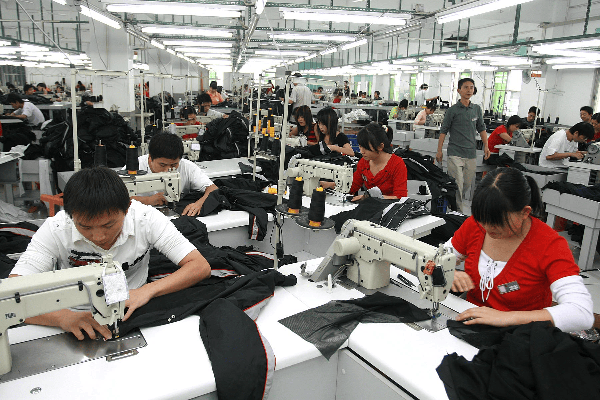Innovative Denim Production for Fashion Forward Brands

Innovative denim production is revolutionizing the fashion industry, offering fashion-forward brands the opportunity to redefine style, sustainability, and functionality. Denim, a timeless fabric, has evolved from its rugged workwear origins to become a staple in high fashion. Today, innovative techniques in denim manufacturing are pushing boundaries, enabling brands to create unique, eco-conscious, and high-performance garments that cater to modern consumers. From laser finishing to waterless dyeing, these advancements are not only enhancing aesthetics but also reducing environmental impact, making denim production more sustainable than ever before.
One of the most groundbreaking innovations in denim production is the use of laser technology for distressing and finishing. Traditional methods of achieving worn-in or ripped effects rely on manual sanding, chemical treatments, and excessive water usage, which contribute to environmental degradation. Laser finishing, however, allows for precise customization with minimal waste. Fashion-forward brands can now create intricate designs, vintage washes, and personalized details without harmful chemicals or excessive labor. This technology not only speeds up production but also ensures consistency in quality, making it a preferred choice for designers who prioritize both creativity and sustainability.
Another transformative approach is the adoption of waterless dyeing techniques. Conventional denim dyeing consumes vast amounts of water, often leading to pollution due to the release of toxic chemicals into waterways. Innovative solutions such as foam dyeing and digital printing significantly reduce water consumption while delivering vibrant, long-lasting colors. Foam dyeing, for instance, uses a foam-based application to transfer indigo onto fabric, cutting water usage by up to 99%. Similarly, digital printing allows for intricate patterns and gradients without the need for excessive dye baths. These methods empower fashion brands to produce eye-catching denim while adhering to eco-friendly practices, appealing to environmentally conscious consumers.
Recycled and organic materials are also playing a pivotal role in innovative denim production. With growing awareness of textile waste, many brands are turning to post-consumer recycled denim or organic cotton to reduce their carbon footprint. Advanced recycling processes break down old denim into fibers that can be spun into new yarns, creating a circular economy within the fashion industry. Organic cotton, grown without synthetic pesticides, offers a cleaner alternative for denim production. By integrating these materials, fashion-forward brands can craft high-quality denim that aligns with sustainability goals without compromising on style or durability.
Smart denim is another emerging trend, blending technology with traditional fabric to enhance functionality. Innovations such as temperature-regulating fibers, moisture-wicking treatments, and stretch-infused weaves are transforming denim into performance wear. These advancements cater to the demands of modern consumers who seek versatility in their wardrobe. Whether it’s jeans that adapt to different climates or denim jackets with built-in UV protection, smart denim is redefining what the fabric can do. Fashion brands that embrace these technologies position themselves as pioneers in the intersection of style and innovation.
The rise of customization and on-demand production is also reshaping the denim industry. Consumers today crave personalized experiences, and brands are responding by offering made-to-order denim. Digital platforms and 3D prototyping enable customers to design their own fits, washes, and embellishments, reducing overproduction and waste. This shift toward bespoke denim not only enhances customer satisfaction but also promotes a more sustainable business model. Fashion-forward brands leveraging these capabilities can differentiate themselves in a competitive market while fostering a deeper connection with their audience.
Sustainability certifications and transparency are becoming key factors in denim production. Consumers are increasingly scrutinizing the ethical practices behind their clothing, prompting brands to adopt certifications such as BCI (Better Cotton Initiative) and GOTS (Global Organic Textile Standard). Transparent supply chains, where brands disclose sourcing and manufacturing processes, build trust and loyalty among eco-conscious buyers. By prioritizing ethical production, fashion brands can strengthen their reputation and appeal to a growing demographic that values sustainability as much as style.
The future of denim production lies in continuous innovation and collaboration. As technology advances, new possibilities will emerge, from biodegradable denim to AI-driven design processes. Fashion-forward brands that stay ahead of these trends will not only lead the market but also contribute to a more sustainable and dynamic industry. By embracing innovative techniques, materials, and business models, denim can remain a cornerstone of fashion while evolving to meet the demands of tomorrow’s consumers.
Global logistics
It can be shipped worldwide
About the MOQ
Minimum order quantity of 200 pieces
Support 24/7
Call us:(+86)136 6980 8954
Free sample
200 pieces MOQ Free sample







Customized product message